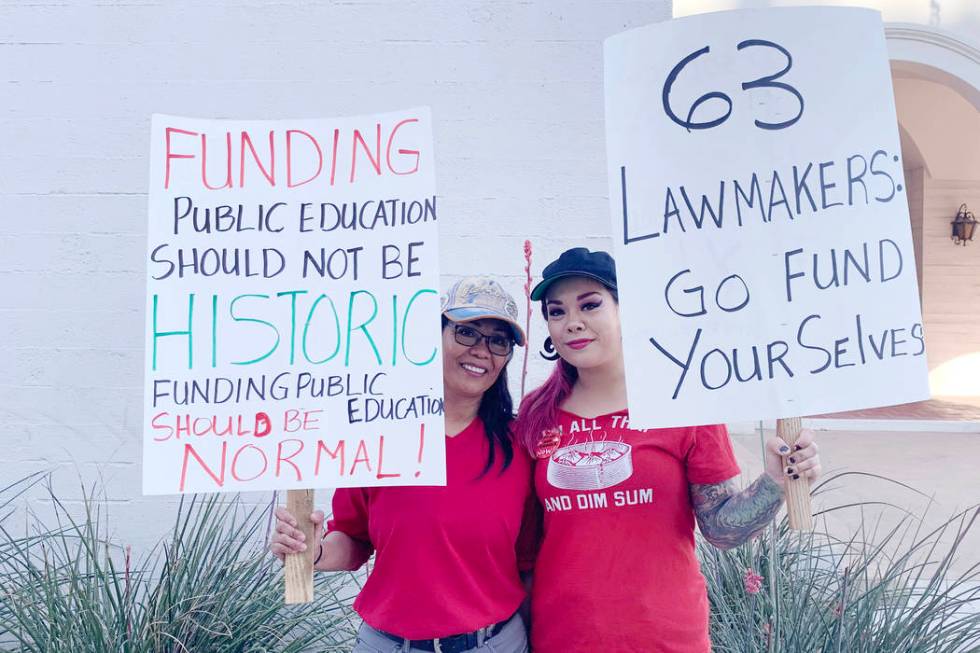EDITORIAL: CCSD needs to prepare to prevent teachers from striking

A dispute between adults shouldn’t hinder the amount of time students spend in the classroom. Yet that could be the ramification for the Clark County Education Association’s irresponsible strike threats.
On Sunday, the union announced that 78 percent of the more than 5,000 members voting authorized a strike at the start of next school year if it doesn’t get its way at the Legislature. It’s all about “the children,” right? Sure.
Gov. Steve Sisolak has promised 3 percent raises for teachers. But when Clark County School District financial officials dug into Gov. Sisolak’s budget, they couldn’t find the money he promised for educator pay hikes. The new funding he proposed for increases in health care, pension contributions and merit raises wasn’t there either. As the Guinn Center later discovered, Gov. Sisolak “paid” for most of his education spending increases by reducing the state’s per-pupil support amount.
If union officials believe Gov. Sisolak is shortchanging education, they should blame themselves. The union endorsed Gov. Sisolak in a competitive Democrat primary and spent big on his race.
Instead, the union is threatening to take students as hostages.
That’s the wrong approach. It’s also illegal. Union leaders know this. But they don’t think district officials and trustees have the guts to stop them.
“It is prohibited to strike,” John Vellardita, CCEA executive director, said on a recent union podcast. Mr. Vellardita argued that because teachers around the country have gotten away with illegal strikes, a walk-off would succeed here.
That will be true if the school district declines to use the ample legal tools it has to prevent a strike.
Under Nevada law, the school board can decertify the CCEA if it disavows its pledge not to strike. Taking a strike vote certainly qualifies. Trustees should put this move on the table.
Even if the School Board decides not to go that route, the district has another legal option. It can ask a court to enjoin a threatened strike. If a strike occurs anyway, the court can throw union leaders in jail until it ends and fine the union up to $50,000 a day. Teachers who participate in a strike can be suspended or dismissed.
For now, the school district is playing along with the union. Last week, it allowed the union to host four meetings at its school buildings to answer teacher questions about the vote for an illegal strike. The union is also communicating with teachers through the district’s email system.
Perhaps the district is laying low until the legislative session is over, fearing a dispute could endanger funding. But once the session adjourns, it’s imperative that the district make clear it is willing to take the legal steps necessary to ensure students returning to school in August have teachers in the classroom.